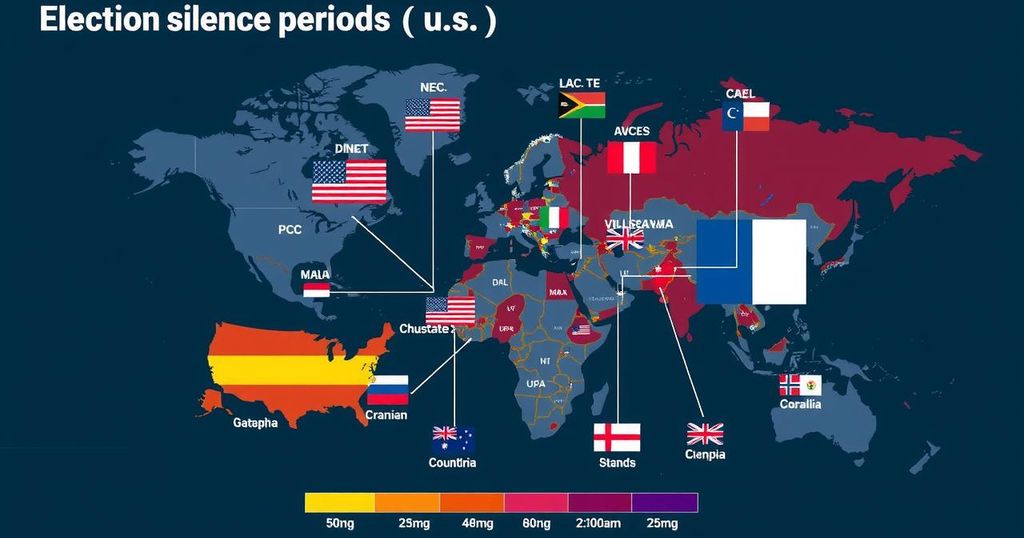Examining Pre-Election Silence Periods: A U.S. Exception in a Global Context

In many democracies, a pre-election silence period bans campaigning before elections, while U.S. candidates may appeal to voters until polls close. This could be crucial in the close race between Trump and Harris. Many nations impose these periods for voter reflection and security. The internet complicates enforcing such regulations, as information continues to circulate. Only 16 countries, including the U.S., allow early voting, and Meta restricts new political ads pre-election while allowing existing ones to circulate.
Pre-election silence periods are prevalent in many democratic nations, where candidates are prohibited from campaigning in the final hours leading up to an election. Such restrictions typically apply for a duration of 24 to 48 hours, allowing voters to reflect without external pressures. This is not the case in the United States, where political candidates can appeal to the electorate right up until polling concludes. The absence of a pre-election silence period may play a significant role, particularly in closely contested races, such as the current political contest between former President Trump and Vice President Harris. Globally, a substantial number of nations have enforced pre-election silence periods; according to Staffan Darnolf from the International Foundation for Electoral Systems, out of approximately 119 countries with elections in 2023 and 2024, 79 possess such regulations. These periods aim not only to provide voters with an opportunity to consider their choices in a less stressful environment but also to mitigate security concerns by diminishing the dissemination of potentially incendiary information. The dynamics of modern elections, notably the role of the internet and social media, present additional challenges to pre-election silence. David Carroll of the Carter Center emphasized that the online landscape contributes to the difficulty of enforcing such silences, given that information continues to spread unchecked regardless of formal campaigning cessation. Despite the challenges posed by late-deciders in both the U.S. and Europe, their presence remains minimal, albeit influential in close races. Additionally, the trend of early voting complicates the traditional voting day structure, as only 16 nations, including the U.S., permit this practice. Moreover, social media giant Meta has instituted its own restrictions on political advertising within the week leading up to Election Day, although previously existing advertisements are still permitted to circulate. In summary, the contrast between the U.S. electoral framework and that of other democracies reveals a significant divergence, particularly in terms of pre-election campaigning regulations. As the role of technology and social media continues to evolve, maintaining the integrity of the electoral process remains a complex issue requiring ongoing attention and adaptation.
The concept of pre-election silence periods is rooted in the notion of ensuring a fair and reflective voting process. Many countries adopt these timeframes to provide a quiet space for voters, allowing them to make informed decisions without last-minute outside influence. In contrast, the United States operates under a different electoral framework, where candidates can continue their campaigns until polling places close. This difference underscores significant variations in electoral regulations across democracies and raises questions about the effectiveness and security of the voting process in the era of rapid information dissemination via the internet.
The lack of a pre-election silence period in the United States allows for continuous candidate engagement with voters, potentially influencing critical late-deciding electorates in close races. However, this approach contrasts sharply with practices in other countries, where such periods aim to foster a calmer voting environment. As electoral dynamics evolve with technological advancements, finding a balance between immediate voter engagement and the integrity of the electoral process remains essential.
Original Source: www.axios.com








